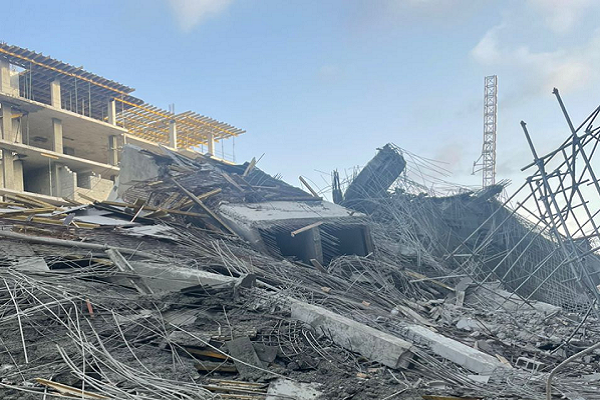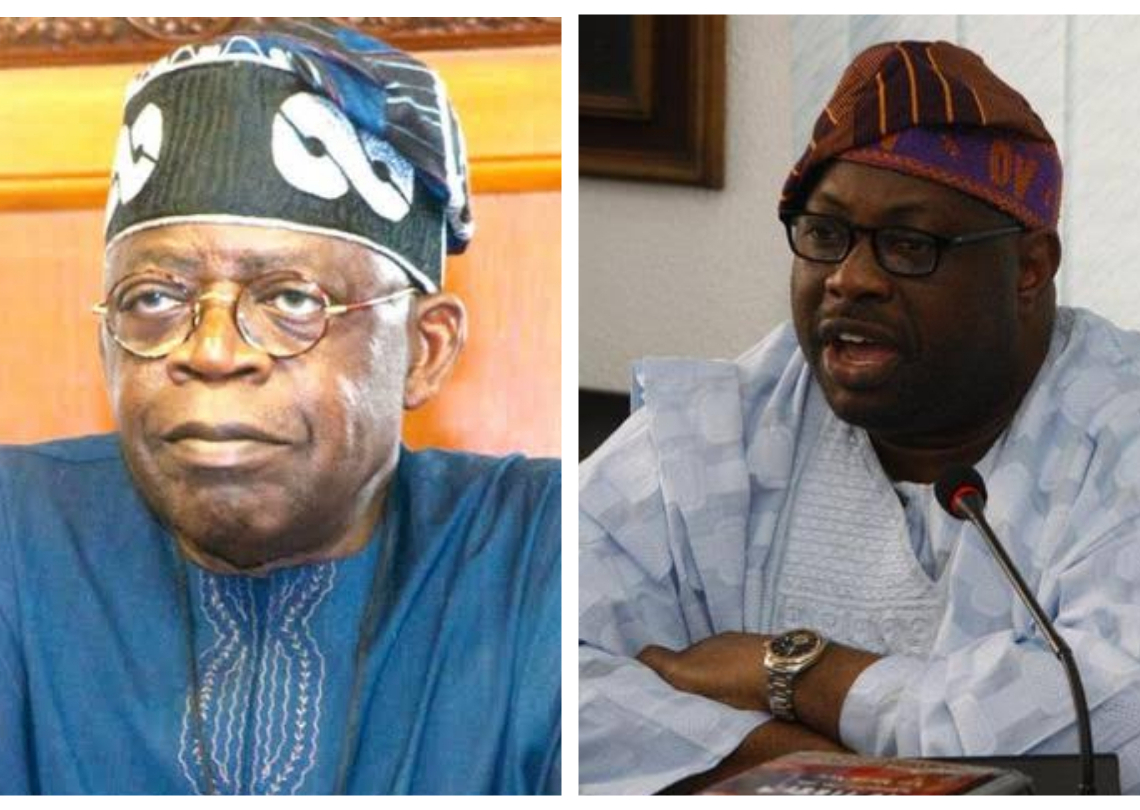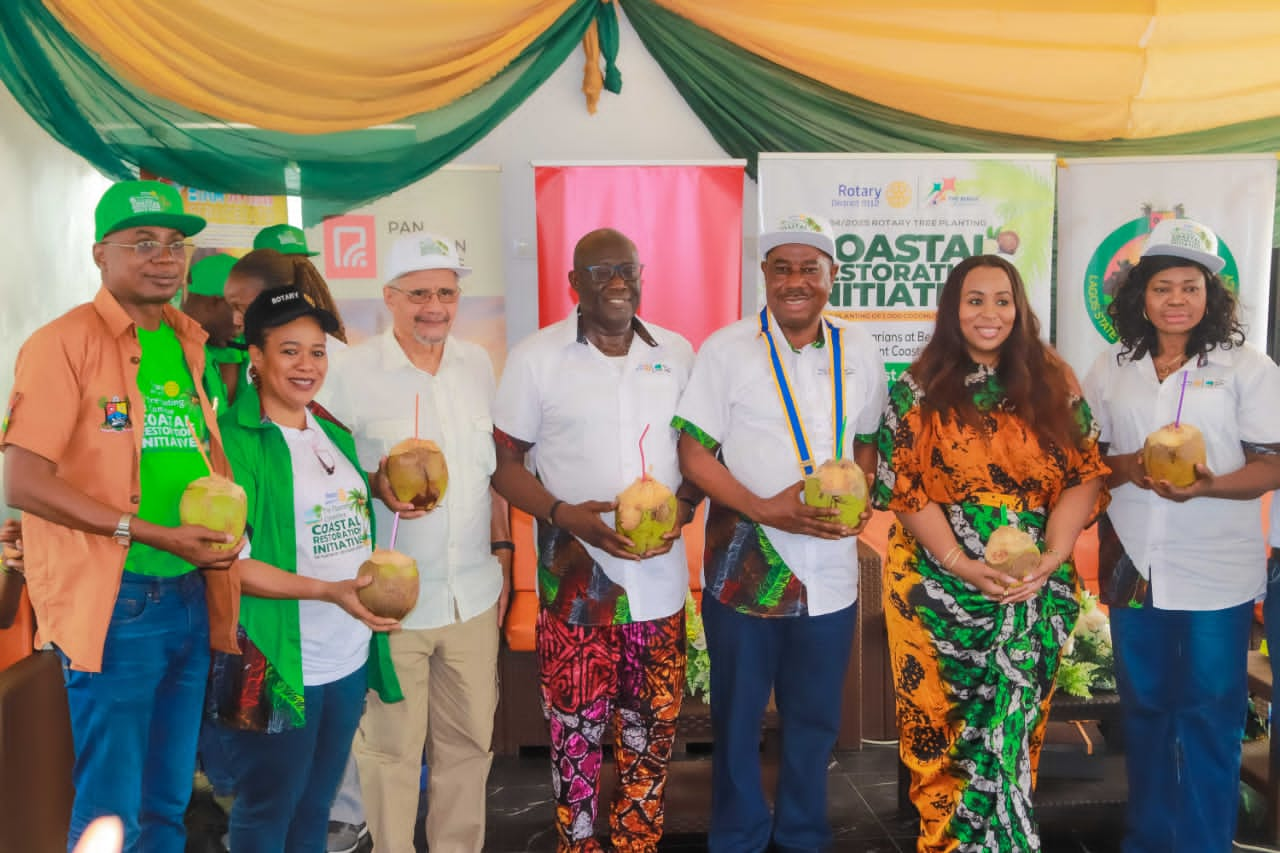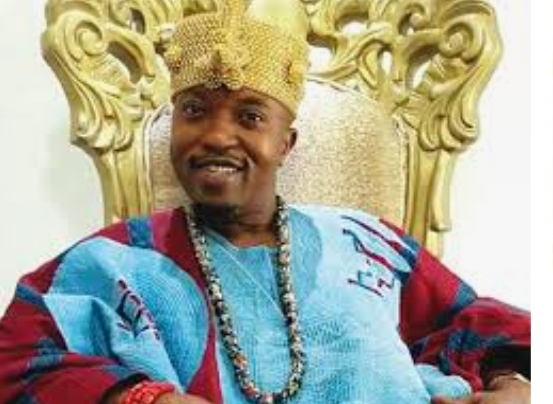Following the collapse of a seven-storey building under construction on First Avenue, in the Banana Island area of Lagos State, the state government has ordered that all development projects in the highbrow area be placed on hold.
The state Commissioner for Information and Strategy, Gbenga Omotoso, in a statement on Thursday, said the process was to ensure that a comprehensive audit was done by officials of the Lagos State Building Control Agency.
He explained that the directive was to enable the government to determine the number of buildings being constructed without approval in the highbrow area and to know if all the approved buildings were being built in line with the approval limits provided.
The statement read, “The Lagos State Government has launched a probe into the collapse of a seven-storey building under construction on Banana Island, Ikoyi, following a directive by Governor Babajide Sanwo-Olu.
“Nobody died in the incident, which occurred on Wednesday, as of the time of this report. 25 people were rescued from the site. The Lagos State Emergency Management Agency scanned the building with a high-precision 3-D Laser Imagery System for life and found no evidence of anyone trapped in the rubble.
“A roll call has also been done by the site supervisors, with everyone accounted for. LASEMA has continued with the excavation of the site, using the architectural designs. The site has also been divided into quadrants for a painstaking search and rescue operation. Presently, quadrants 2 and 3 have been levelled to ground zero, having completed the search operation. Quadrants 1 and 4 are ongoing.”
According to the statement, the operation was being coordinated by the state Commissioner for Physical Planning and Urban Development, Tayo Bamgbose-Martins, and the Special Duties Special Adviser, Mobolaji Ogunlende, while the operation was being led by the LASEMA Permanent Secretary, Dr Olufemi Oke-Osanyintolu.
Noting that the state Commissioner for Health, Prof Akin Abayomi, had visited the site and hospitals where victims of the incident were admitted, Omotosho said out of the 25 persons rescued by emergency responders, 16 victims who sustained moderate injuries were admitted at the General Hospital, Odan, Lagos Island and at the police hospital at Falomo, for treatment and care.
The statement added, “Nine others with minor injuries, such as bruises, were treated and discharged at the site by Lagos State Ambulance Services. Of the 16 persons on admission, 11 were taken to the police hospital, Falomo. Eight of the 11 persons have been treated and discharged.
“Some are required to come for daily follow-up and management. Three with various injuries, including blunt traumatic chest injury, knee injuries, deep lacerations and others, are on admission. At the General Hospital Odan, Lagos Island, there are five patients with more serious injuries.
“The state government, as a matter of policy, will be responsible for the emergency treatment and care, including the medical bills of the victims on admission. It will also provide post-trauma counselling support and care for all victims through the Lagos Mental Health in Development programme – a free mental health counselling and support service provided by the ministry of health.”
Omotosho said preliminary investigations revealed that the collapse occurred during concrete casting, noting that eyewitnesses said one of the concrete mixer trucks rammed into some load-bearing columns of the building, causing a loud bang and leading to the collapse.
“The building was hitherto sealed by the Lagos State Government for not having the approval to commence construction, but the developers continued to build, hiding under the security of their estate/gated community.
“Mr Governor has directed that all developments on Banana Island be placed on hold, subject to a comprehensive audit by the officials of the Lagos State Building Control Agency. This is to determine how many buildings are being constructed without approval from the Lagos State Government; and if all approved buildings are being built in line with the approval limits provided,” the statement said.
Omotoso noted that the exercise would be extended to other estates and gated communities in the state.
However, journalists, during a visit to the scene for a follow-up story, experienced a hectic time gaining access into the estate on Thursday as the estate’s security guards, while reportedly acting on the instruction of the estate management, denied them access, causing them to be stranded for hours.
The estate management was said to have enforced the restriction to prevent hoodlums from infiltrating the estate.
After they were allowed access to the estate, the journalists were prevented by security operatives manning the site where the building collapsed. However, following an intense argument, the journalists were granted access.
Construction workers were performing their daily tasks in the building that had been under construction for months when it suddenly caved in around 4.58pm on Wednesday.
While some of the workers at the site escaped unhurt with some sustaining varying degrees of injury, some other workers, who were unlucky, got trapped beneath the rubble of the collapsed structure.
The Punch


 News6 years ago
News6 years ago
 Featured6 years ago
Featured6 years ago
 Boss Picks6 years ago
Boss Picks6 years ago
 Headline6 years ago
Headline6 years ago
 Headline6 years ago
Headline6 years ago
 Headline6 years ago
Headline6 years ago
 Headline6 years ago
Headline6 years ago
 Headline6 years ago
Headline6 years ago













